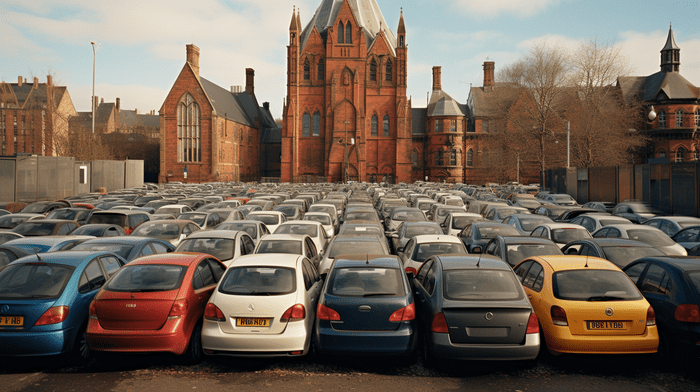

Parking problems in Liverpool

In Liverpool, a city known for its vibrant culture and thriving commerce, the issue of parking has taken center stage. Each day, an impressive 18,000 vehicles flood the city center, culminating in a staggering annual total of 6.5 million. This surge of vehicles vying for limited parking spaces leads to traffic snarls, extended commutes, and occasional driver frustration, painting a vivid picture of the parking problems in Liverpool.
The Financial Impact
Beyond the inconvenience, there's a substantial financial cost to consider. Studies reveal that drivers navigating congested urban areas spend an average of 17 hours per year in the quest for parking. This effort translates to an estimated cost of over £300 million annually, reflecting wasted time and fuel. This staggering figure underscores the pressing need for effective parking management solutions in Liverpool.
A Multifaceted Approach
To tackle this issue, Liverpool is adopting a comprehensive strategy. Encouraging alternative transportation methods, such as cycling or leveraging the city's efficient public transit network, is proving to be a potent means to alleviate parking demand.
Liverpool City Council's Initiatives
Liverpool City Council is taking proactive steps towards resolving the parking conundrum in Liverpool. With the increasing population and a surge in the number of vehicles, finding suitable parking spaces has become a significant challenge. Through their official website, they provide crucial information regarding roadworks, closures, and alternative routes, as well as updates on available parking spaces and facilities. This resource empowers both residents and visitors with the means to judiciously plan their journeys, contributing to a smoother flow of traffic and a more enjoyable experience in Liverpool. Despite the ongoing parking problems in Liverpool, these efforts signify a positive shift in the right direction. Through these collective initiatives, Liverpool is on the path to transforming its urban landscape, making it not only more accessible but also markedly more enjoyable for all who traverse its vibrant streets.
